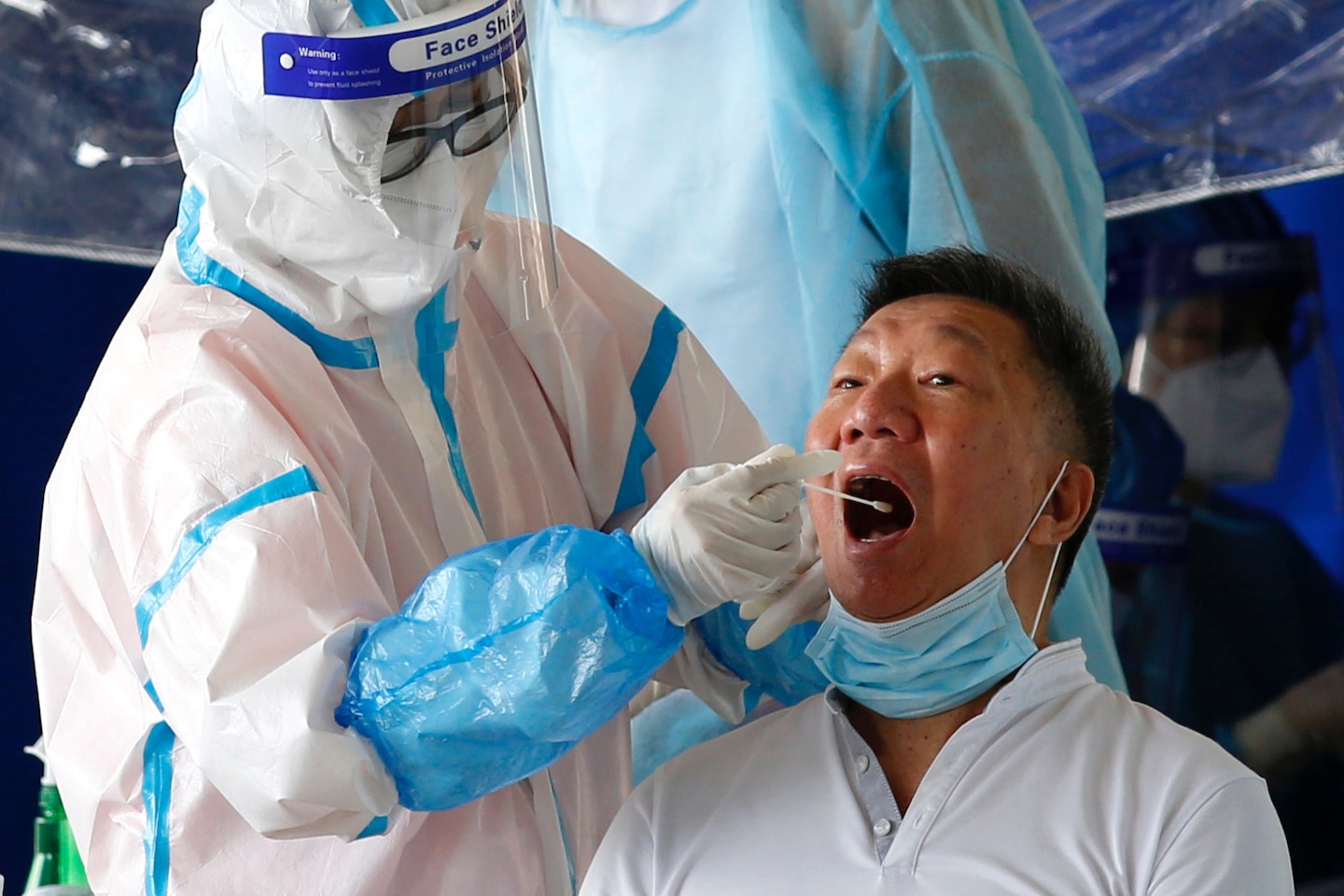Hong Kong was a pandemic poster child. Now it’s a cautionary tale.

All of that progress has come to a halt, as government missteps and a mutated strain of the coronavirus have led to the most severe wave of infections in Hong Kong since the onset of the crisis in January.
Cases, though modest in comparison with the United States, are setting new daily records. Isolation wards are filling up. From Wednesday, restaurants must suspend dine-in services, masks will be mandatory — even for people exercising outdoors — and residents will be prohibited from gathering in groups of more than two, as officials impose the strictest social distancing measures here to date.
Heralded until recently as a model in the fight against the coronavirus, Hong Kong is emerging as a cautionary tale. Medical experts have blamed large gatherings and government exemptions that allowed certain groups to enter the city without the 14-day quarantine period and virus test mandatory for everyone else.
Those exempted include airline crews, sailors, truck drivers, executives of listed companies and those granted special dispensation by the Hong Kong government — totaling more than 250,000 people between February and June, according to government data.
“You had all these exempted people roaming around the city, taking taxis, contaminating taxi drivers,” said Gabriel Choi Kin, president of the Hong Kong Medical Association. “We are facing this third wave partly due to poor bureaucratic management and a new, more infectious strain of the virus — so there are two problems at the same time.”
The new restrictions have left businesses — especially restaurants and retail — reeling, dashing hopes that strong local demand might help them through the summer after more than a year of disruptions that began when political unrest flared last June. According to OpenRice, an online restaurant guide in Hong Kong, 1,200 restaurants closed between January and May. Many restaurant staff members had been forced to take unpaid leave, even before the latest severe restrictions related to the coronavirus and its disease, covid-19.
“It is hard to look at this as anything but another punch in the gut,” said Syed Asim Hussain, co-founder of the Black Sheep group, which has more than 20 restaurants and 1,000 staff members. “I had predicted that a third of the industry would be decimated, but this is another nail in the coffin.”
“We in Hong Kong sort of were the model for how to do this correctly, and it feels like we may have squandered it,” he added.
The warning signs began on July 5, when a restaurant cook tested positive for the virus, breaking a 21-day streak without local transmission. The number of daily confirmed infections rose steadily as the month wore on, hitting a record 145 new cases on Monday. At one point in May, just over two dozen covid-19 patients were being treated in hospitals; that number has since soared to more than 1,400.
Many of the new cases cannot be traced to existing clusters, complicating efforts to isolate potentially infected people. In the past week, cases have been linked to a slaughterhouse, a food market and elderly homes. Hong Kong on Monday also confirmed two new deaths from the virus, bringing its total to 22.
Even before the new restrictions, restaurants had faced a temporary ban on dine-in services after 6 p.m. Many had adapted quickly by bolstering their lunch offerings or offering earlier happy hour specials — all now to little avail.
Meanwhile, the beaches have been closed and playgrounds cordoned off with tape. From Wednesday, mask dodgers face fines of $645.
“I know the new restrictions will bring many inconveniences to citizens, but I hope they can be considerate. Let’s grit our teeth, bite the bullet and keep going in this critical moment,” said Sophia Chan, Hong Kong’s secretary for food and health.
Hong Kong’s government would take the issue of exemptions “seriously,” she said, amid mounting evidence that the new wave was directly linked to this policy. Exemptions for sea crews, pilots and flight attendants will be tightened from Wednesday, and all other people exempted from the 14-day quarantine requirement must have tested negative for covid-19 before arrival or have a test on arrival and wait for a negative result before entering the city of 7.5 million.
Local news outlets reported Tuesday that Chief Executive Carrie Lam could postpone legislative elections scheduled for September, a vote seen as a crucial test for the pro-Beijing establishment following the passage of the draconian new law.
On the medical front, experts are concerned about the situation in homes for the elderly, where several clusters have been traced. Choi, of the medical association, pointed to a potential shortage of negative pressure rooms in hospitals, even though an increasing number of people are likely to need ventilators.
For businesses trying to avoid massive layoffs amid the highest unemployment rate here in 15 years, every day of full-scale restrictions is proving more devastating. The catering sector is calling for financial subsidies and for the government to pressure landlords to offer rent relief.
Hussain, of Black Sheep, said his group’s revenue is only 5 percent of normal. Even with an aggressive push on takeaway offerings, he doubts revenue can increase to anything more than 10 percent of what it was before.
“We may soon run out of tricks,” he said. “Even looking at all the excellent creative initiatives we have built, they are small lifeboats that I’m trying to put a thousand people on. And we can’t stay on these lifeboats for much longer.”
Tiffany Liang and Timothy McLaughlin contributed to this report.






